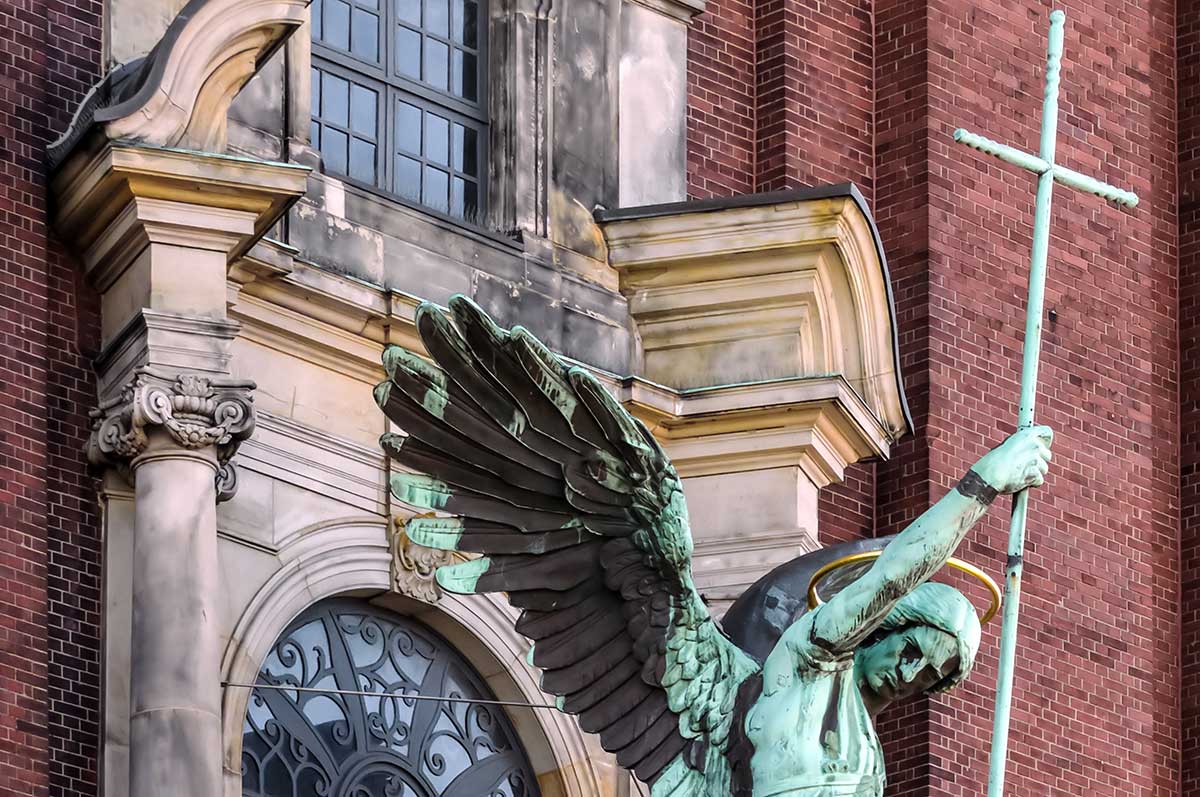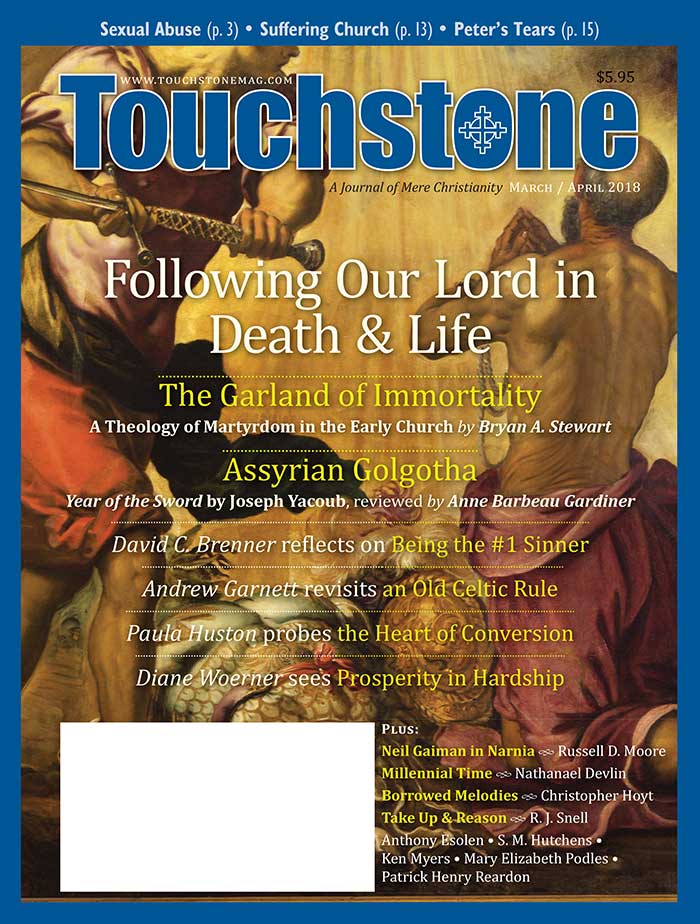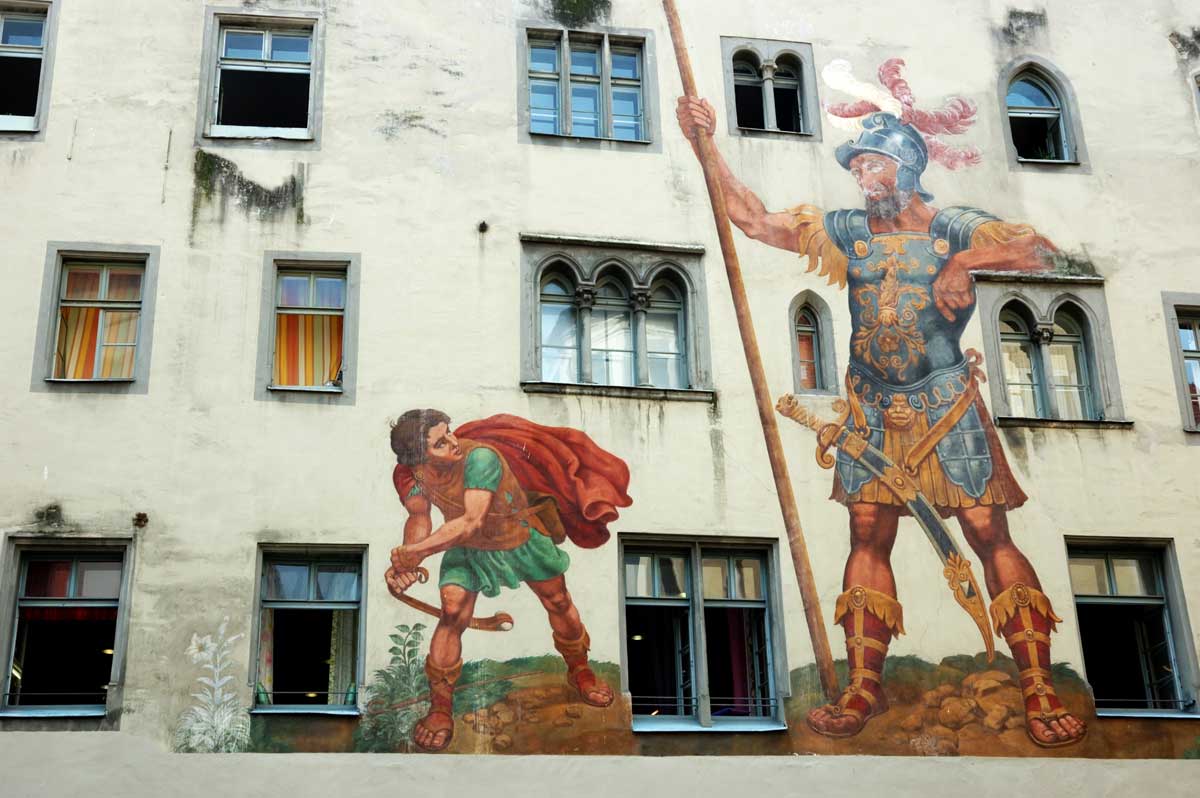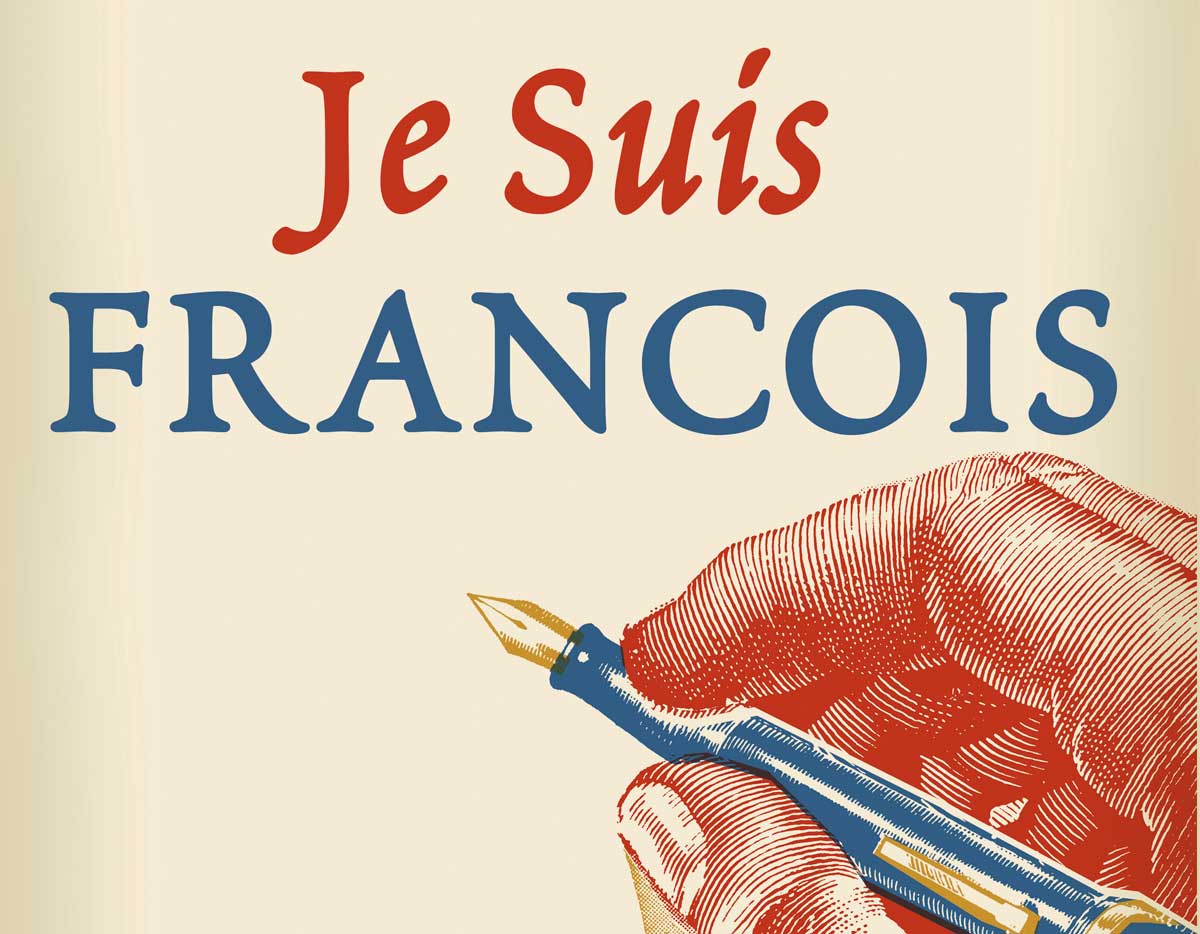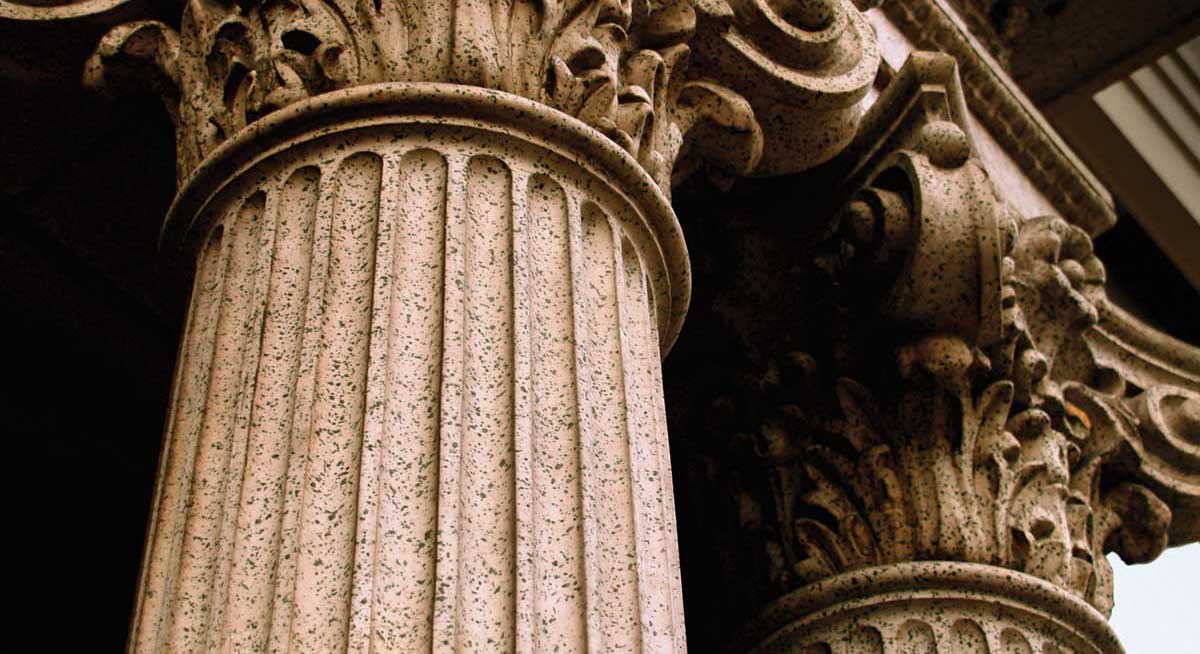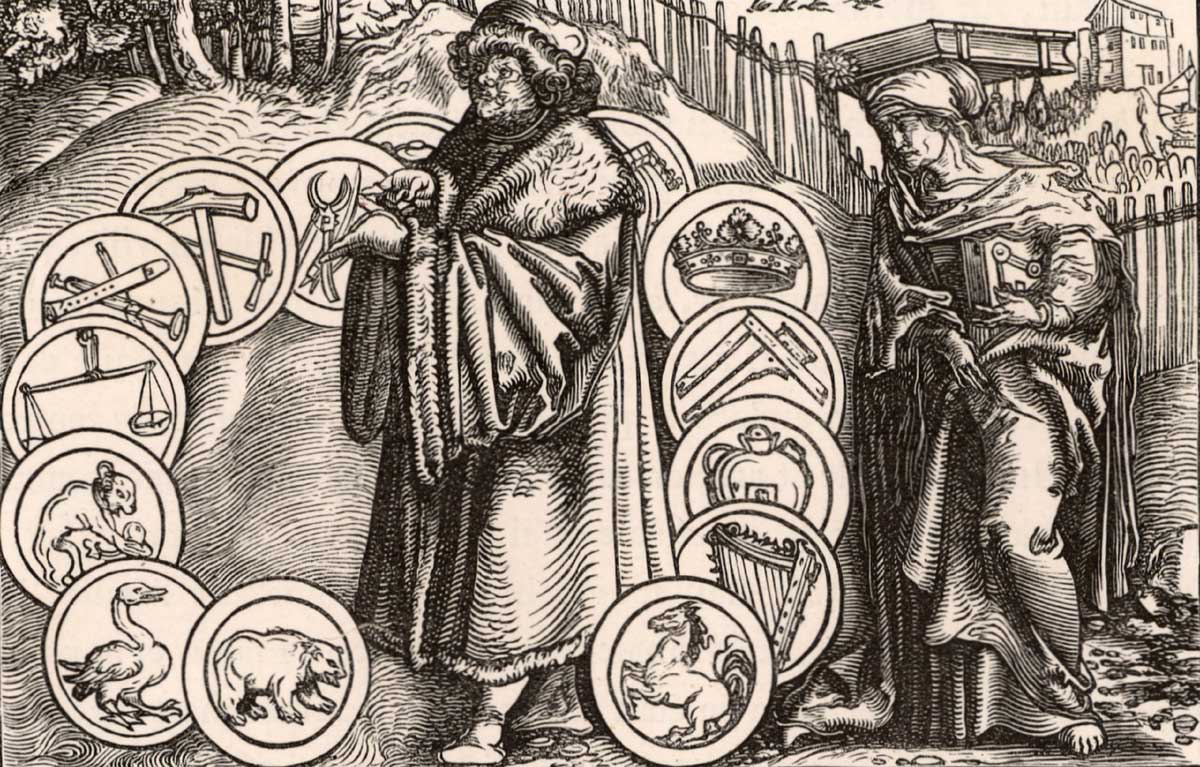Feature
Reason Takes Up Arms
How Best to Face the Total War of the Anti-Culture
by R. J. Snell
It was almost twenty years ago when I first walked into a university classroom as a teacher rather than a student. Barely older than most of the students, and younger than some, my exhilaration was matched only by my terror, for I knew my ignorance and expected the students would soon recognize it as well.
My walk to that first classroom reinforced the mood, taking me past an imposing statue of St. Michael overpowering Lucifer, his sword arm poised to deliver a blow, as Lucifer’s tail, with the head of a snake, struck at Michael’s leg. Michael’s tensed muscles and Lucifer’s snarling face conveyed the drama of rebellion, violence, and the destruction of order.
As I then imagined it, the classroom was no less dramatic, with truth and error, goodness and evil, beauty and ugliness striving to govern hearts and minds. I had a serious obligation, a calling, and much depended on how I comported myself, what answers I had, what texts I chose. That first entrance was momentous, at least for me; I suspect the students wondered what was going on with the jittery lecturer reading aloud the usual dull syllabus.
Two decades later, with many dozens of classes and several thousand students behind me, and having trudged through thousands upon thousands of student essays, I still feel, although much less intensely, that mixture of exhilaration and terror upon entering a classroom. Here is another chance to confront an intellect in its formation, to introduce someone to Plato or Aquinas or P. G. Wodehouse.
Playing the Long Game
Yet I quickly learned that teaching is not best imagined as a battle. Since they are persons, valuable in their own right, students are not spoils or conquests, and I’ve come to distrust teachers who seek disciples or who think of teaching as a political act. Such teachers politicize the texts, pervert free inquiry, reduce ideas to propaganda, and generally act like ideologues and self-appointed prophets. Perhaps worse, they destroy the books, treating even the best texts of our heritage as fodder in the endless race-gender-class routine, never allowing the books to speak for themselves, let alone staying out of the way so students can experience beauty, wonder, piety, and gratitude. Such teachers are illiberal, whatever their professed political leanings, and I have resisted imitating their sins, even for my own (and better) causes. If they were going to indoctrinate, I would not.
I tried to be irenic, that is, to facilitate students’ questions rather than my own, to let books speak for themselves, and to count it a success if students did not know my opinions on the political issues of the day. All of this made sense because of a commitment to the “long game,” the sense that truth would out itself, would make itself known to any student of good will. Consequently, it was more important to teach students to question and ponder, to think and read, and to honestly explore and argue than to arrive at prescribed answers, for in doing the former they were likely to discover the truth in a way that would affix it deeply into their souls.
The long game quite often entailed a willingness to wait, even to allow students to flail about in temporary confusion, for so long as they sincerely sought to know, the odds were good that they would make progress while becoming more honest, more engaged, and more virtuous learners and persons.
Even when things looked grim, either as a particular student seemed committed to what I took to be error, or as the culture of the university seemed to grow ever more hostile, my irenicism convinced me to foster shared inquiry and friendship, and to follow out the arguments. The early Platonic dialogues are powerful models of this, with Socrates insisting that he does not know and has nothing to teach, all the while modeling through word and deed a fundamental commitment to humble inquiry. Socratic conversation, both in the Platonic dialogues and in my classroom, resulted in genuine intellectual conversions.
Thrasymachus, Callicles, Alcibiades, Meletus, Gorgias, Phaedrus, Agathon, and Polus each encountered Socrates as a principle of order, a sign of contradiction, a call to another, better form of life. Some converted to this form quickly, others more slowly, and still others were so entrenched in their disordered passions that they could not be reached, but all confronted the possibility of living the truth in a more honest, powerful, and effective way than any counter-indoctrination could have accomplished. This was particularly evident in the most diseased of minds, those for whom argument was mostly useless but who needed a more fundamental conversion of love and life.
Plato himself, after failing in Syracuse to render a tyrant into a philosopher-king, took seriously the problem of how the best city, Athens, could have executed the best man, Socrates. He abandoned any attempt to forge large-scale political order and instead turned his efforts to the friendships of the Academy. In fact, this was something of a missionary effort, with Plato founding several such communities throughout the Mediterranean region, each committed to fostering a way of life based on inquiry, conversation, and study. So bad was the political disorder that a more fundamental existential ordering was necessary, and to that he turned.
A Radical Change
Now, twenty years into my teaching career, as a good many people start to think that the long game requires turning inward to thick communities and the existential ordering of souls, I find myself turning back to the image of St. Michael at battle. I haven’t changed my mind about how a classroom should work, and I still have great distaste for those who politicize teaching, but it does seem to me that reason should more directly take arms against the sea of our troubles than I had thought before.
Perhaps my irenicism was naïve or culpably ignorant, perhaps I should have recognized the signs of the times all along, but the danger to our form of life is more of an existential threat than it was before. What had been gathering clouds is now a full-on tempest threatening our little raft.
In A Secular Age, Charles Taylor defines “exclusive humanism” as the belief that there are no final goals beyond human flourishing and that such flourishing can be attained and satisfied without any reference to, belief in, or involvement with the transcendent. On this understanding, ordinary, immanent fulfillment is all there is, all we can hope for, and all we need or should want. Exclusive humanism might now be considered the default model of Western society. As Taylor describes it, this kind of secularity sets the conditions of belief in what he terms the “immanent frame.” Even religious adherents operate from within the framing picture of exclusive humanism and define and live their belief from the starting point of immanence.
This is a radical change. There have always been unbelievers, and at times even hostile and active proponents of unbelief, but our secular age is one in which “the eclipse of all goals beyond human flourishing becomes conceivable,” as Taylor puts it. But not just conceivable, as if it is now possible to think this way; rather, unbelief has become the condition of the possibility of conceiving. That is, unbelievers no longer position themselves against the background of widespread belief; rather, it is believers who must position themselves against a default model of exclusive humanism and who must believe despite the patterns of what is held to be conceivable. To believe is now to dissent.
On its own, exclusive humanism is not an existential threat to the tradition, even if it goes some way to explain the pervasive loss of faith. Unique to our time, though, is that the default model of unbelief is coupled with an aggressive, even tyrannical, impetus to what Phillip Rieff terms “anti-culture.” Proponents of the older traditions not only engage the battle from a defensive position, but their opponents hold sway in most, if not all, of the culturally formative institutions, and are engaged offensively. Not content to hold predominance, they need to uproot and eradicate the tradition.
As Rieff explains, anti-culture, just like a creating culture, is unending and all-encompassing, defining and ordering every domain of human reality. The agents of anti-culture are committed to an inverted catholicity, pronouncing universal judgments on meaning, freedom, and the human good, judgments that claim to be authoritative standards of legitimacy. To dissent is to place oneself outside of legitimacy, thus to be a heretic threatening the stability of anti-culture. So it is, in Rieff’s description, that the elites of our time “are characterized by their relentless promotion of the clean sweep.” Traditional culture must not simply be denied; it must be disallowed.
The War of the Anti-Culture
In his wonderful but disturbing book, The Demon in Democracy, the Polish philosopher-statesman Ryszard Legutko describes this dynamic. His phrasing is unusual, but what Rieff calls anti-culture is termed by Legutko “liberal-democratic,” with the hyphenated term indicating a fervent ideological commitment rather than a simple adherence to liberal or democratic systems and beliefs. First, the anti-culture claims ascendancy over everything, consigning traditional culture to the dustbin and denying its legitimacy:
Not only should the state and the economy be . . . liberal-democratic, but the entire society as well, including ethics and mores, family, churches, schools, universities, community organizations, culture, and even human sentiment and aspirations. . . . Once one sends one’s opponents to the dustbin of history, any debate with them becomes superfluous. Why waste time, they think, arguing with someone whom the march of history condemned to nothingness and oblivion . . . ? People who are not liberal-democrats are to be condemned, laughed at, and repelled, not debated. Debating with them is like debating with alchemists or geocentrists.
But it is not enough that this viewpoint should be all-permeating and constitute the default model for thought and legitimacy; in addition, those institutions and thoughts deemed incompatible must be eliminated, even though they are already considered useless, laughable, and on their way to inevitable demise:
The people, structures, thoughts that exist outside the liberal-democratic pattern are deemed outdated, backward-looking, useless, but at the same time extremely dangerous as preserving the remnants of old authoritarianisms. Some may still be tolerated for some time, but as anyone with a minimum of intelligence is believed to know, sooner or later they will end up in the dustbin of history. Their continued existence will most likely threaten the liberal-democratic progress, and therefore they should be treated with the harshness they deserve.
The agents of anti-culture, thus, are unwilling simply to allow the tradition to dissolve, as they believe it is inevitably destined to do, for the continued existence of the traditional culture, even temporarily, is judged impermissible and threatening; it destabilizes the new forms of meaning and (dis)order, and so it must be stamped out.
Antonio Gramsci (1891–1937), one of the intellectual fathers of anti-culture, rejected what he believed to be the naïve economism of Soviet-style Communism, with its belief in the historical necessity of revolution and the advent of socialism. Instead, as explained by Roger Simon, hegemony must be developed and exercised by “persuading the subordinate classes to accept the values and ideas which the dominant class has itself adopted, and by building a network of alliances based on these values.” Overcoming the perceived hegemony of traditional culture was to be accomplished by a “counter-hegemony, requiring a prolonged process of moral and ideological reform.”
This was a “war of position,” as Gramsci termed it, in which coercion and persuasion would be combined, such that the subordinate classes would not be dominated by power alone but would somewhat freely consent to the new values. Their own values would be cajoled and pushed along—nudged—sometimes bullied, sometimes seduced or entertained, until the people desired anti-culture. Hegemony, thus, was “the organization of consent,” the structuring of institutions so that people would view the world through new lenses.
Of course, the mere presence of the older system is incongruous, a sign of contradiction; it shows the people’s consent to be arbitrary, provisional, and reversible. The existence of the Church, for instance, is a mark of difference that calls the new values into question, and so the Church must be eviscerated, or better, be so corrupted as to lose its moral distinctiveness and become part of the consenting anti-culture. (Why, after all, were the Little Sisters of the Poor forced to provide contraception when it would have been so easy for the Affordable Care Act to make accommodations for them?)
Attaining consent, and the legitimizing power that goes with it, is quite an accomplishment, but maintaining hegemony after power is attained is equally important. It is not enough to have dominance; that dominance must be continually re-entrenched and strengthened. This explains, in part, the relentlessness of the sexual revolution—it was not enough to have secured same-sex “marriage,” for example, and so the turn to “transgender rights” ensued with remarkable speed and ferocity.
The battle against oppression never ceases, and new victims must constantly be identified, even as the institutions and structures of hegemony must always be reinforced in their organization of consent. Think, for instance, of the seamlessness with which the entertainment industry wiggles into every nook of our society, constantly hectoring, preaching, transgressing, breaking down “barriers”; or the way in which the NCAA and ESPN took up the case for transgenderism, an area not of obvious concern to those reporting football scores. Power must be nurtured, hegemony extended and solidified, so that it becomes prevalent, all-encompassing, and seemingly undeniable and irrevocable. To allow recusants is to render hegemony fragile, and so small-town florists, bakers, and pizza shop owners must be cowed or destroyed.
So it is that a kind of sacral status has been assigned to notions such as “rights,” “progress,” “equality,” “victims,” “the Other,” “colonialism,” or “the marginalized,” to choose but a few. Such terms have become part and parcel of the organization of consent, and they are used to bully and beat those who hesitate before sexual liberation, embryo-destructive research, the redefinition of marriage, and so on—who in his proper mind can be against “rights” or for “colonialism”? Those who desist are first deemed irrelevant and archaic; then are judged hostile, threatening, and dangerous; and finally are erased, eradicated.
Never-Ending Aggressiveness
In The New Philistines, Sohrab Ahmari explains how anti-cultural artists first demand “visibility” for the marginalized and the oppressed and then turn against visibility itself as their culture war becomes total war. Visiting an art gallery or museum, one notices the glum uniformity of it all, for once art is rendered a tool of political struggle rather than a search for beauty, transcendence, or even self-expression, it is no surprise that every work is categorized within the structures of race-gender-class-sexuality, with privilege given to those voices thought to be insufficiently “visible.” Similarly, an unusually high number of sexual minorities are represented on network television, far beyond their actual demographic occurrence; this is an attempt to render them “visible,” notable, and legitimized. By this means, their presence becomes known, then accepted, and finally celebrated.
But as Ahmari observes, the leaders of anti-culture now reject this entire model. Visibility, they now profess, assumes the priority of the dominant culture and is a way of seeking to be accepted by that culture. Such acceptance, however, is tantamount to being enveloped and absorbed; it is to become part of the dominant culture. But if that culture is to be unmade, so, too, must tolerance and visibility themselves be rejected, replaced by a destructive and nihilistic relativism that levels all distinctions and all hierarchy. No longer is the goal acceptance or even celebration, for that implies the validity of the normal culture, and it is that very normativity that must be shattered and ground to dust.
Thus, the very willingness of our older norms to include the victim is now judged unacceptable, and so, even as the agents of anti-culture “win,” gaining hegemony over and through all our institutions, they exhibit a new aggressiveness. They’ve won, found acceptance, are on the payrolls of the government, foundations, museums, libraries, and universities, but that’s not nearly enough, for those structures themselves tend to “tame” and “defang” the most destructive of their tendencies. And so they attack all the more ferociously and all the more expansively.
Anti-culture will not be satisfied until every human thought and aspiration, emotion and sentiment, is taken captive. But since hegemony and the war for position is unending, even complete acquiescence will not end the war, so insatiable is the culture of death and the way of lies. The culture war, thus, is total war. As Legutko put it, anti-culture warriors are not satisfied to exert dominance over law and governance, mores and manners, but wish to control even “human sentiment and aspirations.” They want everything in their tyrannical destructiveness.
The Spirit of St. Michael
Consequently, my students, or a good many of them, tend to have been brutally malformed by the anti-culture. Their tastes are off, their loves misshapen, their values distorted, their beliefs skewed, as even a cursory glance at the campus events of the last few years would indicate, let alone a close study of their values, actions, and commitments. That’s troubling, but in some ways not notably unique. Humans are always skewed, and every new crop of students has, from time immemorial, presented its disorders and pathologies. The grave concern is that they are formed by the now total war of anti-culture, and the tradition is not only viewed with hostility but is targeted for destruction. This is something akin to an existential threat to the tradition and its practices, and times of existential threat are abnormal, even perhaps calling for unusual actions and strategies.
Despite this threat, politicizing the classroom remains unpalatable and something of a violation of the internal logic and purpose of genuine teaching; plus, mirroring the “other side” cements their victory. I do not, then, suggest turning the classroom into a “righteous” ideological space or battlefield. I’ll continue to do my best to read the texts, follow the questions and arguments, and encourage students to develop their intellects and selves through an encounter with the great books of our patrimony.
But it does mean that the tradition needs to be less complacent and adopt more of the spirit of St. Michael. Certainly, after several generations of sleepy contentment, we need urgently to equip and prepare those happy few who remain committed, especially among the young. And that is no small matter, as we’ve essentially handed over our schools and clubs, families and parishes. The institutions most responsible for the formation of our members appear enervated or complicit, and we face a massive, almost inconceivably difficult task of renewal and creation. And far too many of us have settled into a drowsy indolence. We have not catechized, we have not taught, we have not studied—we are, or far too many of us are, woefully unprepared.
This will not do. Our easy comforts must be set aside and our wills must be steeled as we set to the task. This is a moment calling for a great and long struggle, an apostolic commitment, likely for generations. Apostolic souls are unfortunately rare, and we had best support those we have.
R. J. Snell is currently a visiting lecturer at Princeton University, and he directs the Center on the University and Intellectual Life for the Witherspoon Institute. Prior to that appointment he was Professor of Philosophy at Eastern University and the Templeton Honors College. His most recent book is Acedia and Its Discontents: Metaphysical Boredom in an Empire of Desire (Angelico Press, 2015).
subscription options
Order
Print/Online Subscription

Get six issues (one year) of Touchstone PLUS full online access including pdf downloads for only $39.95. That's only $3.34 per month!
Order
Online Only
Subscription

Get a one-year full-access subscription to the Touchstone online archives for only $19.95. That's only $1.66 per month!
bulk subscriptions
Order Touchstone subscriptions in bulk and save $10 per sub! Each subscription includes 6 issues of Touchstone plus full online access to touchstonemag.com—including archives, videos, and pdf downloads of recent issues for only $29.95 each! Great for churches or study groups.
Transactions will be processed on a secure server.
more on apologetics from the online archives
more from the online archives
calling all readers
Please Donate
"There are magazines worth reading but few worth saving . . . Touchstone is just such a magazine."
—Alice von Hildebrand
"Here we do not concede one square millimeter of territory to falsehood, folly, contemporary sentimentality, or fashion. We speak the truth, and let God be our judge. . . . Touchstone is the one committedly Christian conservative journal."
—Anthony Esolen, Touchstone senior editor





